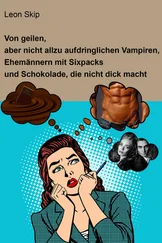Since various radio stations had broadcast my address, upward of ten law firms and a dozen independent attorneys offered to represent me in a civil suit charging the Essex Hotel with negligence. They left business cards and messages at the front desk. One attorney actually telephoned up from the lobby. “Look,” I said, “fuck off. Alfonse Padgett murdered my wife, the hotel didn’t. The other bellmen and Mr. Isherwood, they’re my friends. So fuck off to fuck-off land and leave me alone.”
“Mr. Lattimore,” this attorney said, “in the eyes of the law, you’re deserving.”
I hung up.
Like I said, it was a month before I ventured out of my room, just to sit somewhere besides at my kitchen table. On that first visit to the lobby, the bell captain, Mr. Prater, sat next to me on the window-side sofa. I had not spoken more than a few words to him before, yet his sincere tone did not put me off. “Mr. Lattimore,” he said, “I’ve debated whether or not to say what I’m going to say, but here goes. There’s a very smart man, I call him a head doctor, but I’m unlettered, and educated people would call him a psychiatrist. Years before you and Elizabeth, I’m told, he lived here in the hotel. He put up a shingle on Spring Garden Road. My own son James had six months of seeing Dr. Nissensen — that’s his moniker, Nissensen. And James had every resistance toward this kind of thing. My son was brought up to work out problems on his own, eh? But sometimes, and here’s my platitude, and I’m no clergyman, sometimes life just blindsides a person. Rips his goddamn guts out, to use some language. Then a person needs some help. I’ve put Dr. Nissensen’s card in your mail slot.”
Mr. Prater got up and walked to the bell captain’s station, where he took a telephone call.
Ten days after I’d gone down to the lobby, I had my first therapy session. Before that, I had made three appointments and canceled each one. In the end, I conquered my fears and decided to try this Dr. Nissensen.
“Tell me something about yourself,” Dr. Nissensen said, to begin. “I read the newspapers, so I know about what happened to your wife. I’m very sorry.”
I took in my surroundings for a moment, then said, “I was writing for radio, for a program. You’re probably old enough to remember the original. I got hired by the CBC to update some episodes of Mr. Keen, Tracer of Lost Persons. ”
“You are correct in estimating my age, Mr. Lattimore, and indeed I do remember that program. Very popular when I was young. My age might be important to you, but we can address that later. Please continue. You were writing for radio…”
“This was before Elizabeth was murdered. I was writing a scene in which a criminal gets fingerprinted at a police station. A policewoman stands behind him and presses each of his fingers to the ink pad, then to the official arrest record. And while I was typing up this scene, Elizabeth came up behind me and read over my shoulder. ‘Mmmm,’ she said. ‘Sam, I’m getting all hot and bothered.’”
“I see.”
“I can close my eyes and it feels like it happened yesterday. I can hear her voice. It’s so real. Like it happened yesterday. Elizabeth took my hand and kissed each of my fingertips. Then she wrote her name with a pen, like a high school lovesick thing. She wrote her name on my fingertips, you know, E-L–I-Z-A-B-E-T-H, which left my right thumb bereft of a letter. And Lizzy didn’t like that, and so she paid some special attention to that thumb, kissing it over and over, like it’d been slammed in a door or something.”
I suddenly needed some air and bolted from Dr. Nissensen’s office, stood in the waiting room, gasping for breath, my face pressed to the window. Then I hurried out to the street.
Back at the Essex Hotel, I told bell captain Prater, “Things didn’t work out, but thanks for the suggestion.” Yet I was in Nissensen’s waiting room twenty minutes early the following Tuesday. And after that session, I said to Mr. Prater, “I’m giving it a second chance.”
All this came back to me while driving in the truck after Dr. Nissensen informed me of the fact that Peter Istvakson had tried to arrange a session. Just before I arrived in Port Medway, I figured out that it had to have been bell captain Prater who’d told Istvakson I was seeing Dr. Nissensen. Istvakson had ears all over town.
He Must at Least Touch My Hand (Fourth Lindy Lesson)
I’D STARTED TO get the hang of the intermediate lindy, thanks to Elizabeth’s diligent attention. She had insisted on practicing a minimum of half an hour every night after dinner, even on the rare occasions when we ate in a restaurant. Like everything else she put her mind to, mastering the lindy was a matter of devotion. “Practice, practice, practice,” and it didn’t hurt that trying to get me to somehow be more coordinated provided a lot of laughs. A day or two before the fourth lesson, sitting in the bath together, Elizabeth said, “Sam, there are eight couples still taking the lessons, and I hereby officially rank us as third best. We’ve gotten better by leaps and bounds, but you have got to get your hands held right. Try to stop looking like you’re a bobby directing traffic in London or something, I don’t know. You improve on that and I’ll make bouillabaisse.”
“I’m pretty confident lately. It might not show, but I am.”
“How confident?”
“I put a down payment on the advanced lindy classes.”
“If you’re lying, I’m sleeping on the chaise longue tonight.”
“Ten dollars on deposit. A ten-dollar bill set directly into Mr. Moran’s hands.”
“Wash my back?”
Padgett may have been banished from the ballroom, but he remained employed by the hotel. He was still in the lobby, so we could not entirely avoid him. Elizabeth and I made a pact, vowing not to allow each other to mention his name. Still, he managed to creep us out. For instance, one time we had just come in from a matinee, our reward for her finishing three very difficult pages of her dissertation and for my completion of a rewrite of Mr. Keen, Tracer of Lost Persons (from “The Case of the Husband Who Didn’t Believe His Wife Was Dead.” Synopsis: “McBride is in New York. The couple meet. Kean not only reunites them, but sees that the stage act of McBride and Lindine will re-form, to the delight of audiences everywhere.”). It was a bitter cold day, snowing, we had on our overcoats over sweaters, and Elizabeth wore mittens. The heat from the radiators in the lobby was a relief, and we were going to go right up to our apartment and make dinner. As we waited for the lift, Padgett walked toward us. Under her breath Elizabeth said, “Mayday, Mayday, creep bellman approaching.” But Padgett stopped a good ten meters away and said, “The chaise longue looks on the mend. That Mr. Kaufner does good work.” That was all he said, but it meant he’d been in our apartment again.
Elizabeth and I immediately reported this whole thing to Derek Budnick. He listened intently, took a few notes, and said, “Twice now I’ve suggested that Padgett be sacked. But right now — and I don’t care who sees it — he’s going to see the back of my hand. Please excuse me.”
Anyway, the fourth lindy lesson went very well, according to Elizabeth; the next night she made bouillabaisse. Whenever Elizabeth cooked, she’d announce each stage of the recipe out loud: “Stir ingredients to keep the bottom of the pot from scorching.” “Drizzle in hot sauce at intervals.” “Sauté sausages only until light brown before placing them in the pot.”
Still life after the fourth lindy lesson:
Elizabeth asleep with head down on her desk, next to her copy of The Victorian Chaise-Longue, the shortwave radio on, the Amsterdam Philharmonic playing, occasional static intervening. Dark green Cyrano’s Last Night T-shirt on the ironing board, the iron unplugged, cord dangling. A pigeon on the windowsill, looking into the room, or maybe at its own reflection. A camera bought used at Freeman’s All-Purpose on Lower Water Street. A note: Dad’s birthday present will take a month by ship, so send air mail — don’t be cheap! Wooden bread board, half a loaf of bread. Bottle of red wine, one quarter full. Elizabeth murmuring in her sleep. Whimsical expression on her face, something in a dream amusing her. Bottle of aspirin. Carefully, so as not to wake my wife, I place a shawl over her shoulders. Turn the radio volume down. I sit at the table and start to take notes for a new assignment for Mr. Keen, Tracer of Lost Persons. Suddenly, without waking, Elizabeth says, “He must at least touch my hand,” then something like, “Mouse alarm.” My laughter at “mouse alarm” might have woken her, but didn’t. (Just a few days ago, here in my cottage, reading the novel, I discovered that “He must at least touch my hand” is from The Victorian Chaise-Longue. )
Читать дальше












